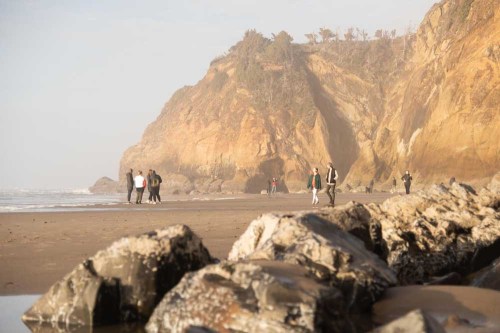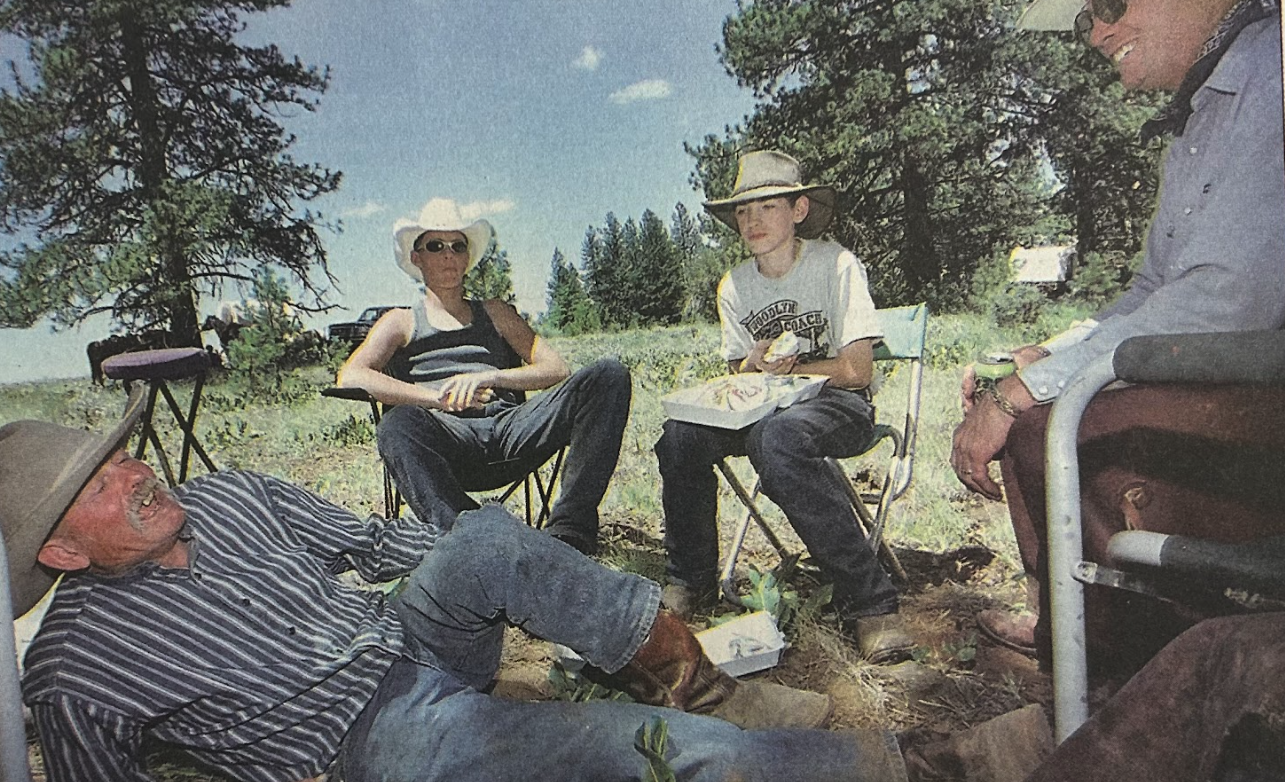Study finds coastal ecosystem under stress
Published 1:30 pm Tuesday, January 18, 2022

- People walk along an intertidal zone at Hug Point.
A sign of climate change has gone unseen — and underfoot — on the Oregon Coast.
A recent study from a team of scientists at Oregon State University found that, for at least the past decade, seaweed, barnacles, mussels, anemones and other species that make up the ecosystem on rocky coastlines have weakened as temperatures rise.
“To the untrained eye, you wouldn’t actually be able to see this,” said Sarah Gravem, a postdoctoral researcher and co-author of the study. “But what it’s showing us is that there are symptoms of climate change that are not that apparent, unless you start really experimenting and tracking things in detail over long periods of time.”
Between 2011 and 2019, the team monitored several plots in Cape Foulweather, Cape Perpetua and Cape Blanco. They found that natural variation increased, a sign of instability and an indication that an ecosystem may change.
The experimental approach they took brought more startling results, though, in an ecosystem that had previously appeared resistant to stress.
Assuming the role of a hypothetical storm, heat wave or disease, the team cleared another small plot at each site — every year — for nearly a decade. They removed all visible species, including mussels, barnacles and sea stars. Then, they tracked how quickly the site could recover.
Over time, the plots’ ability to bounce back slowed, and its variation increased. This showed that in the last decade, the intertidal zones have become less resilient and more vulnerable to disruptive events.
The plots became more vacant over time.
Bruce Menge, the lead author on the study, is particularly concerned with the decline of mussels, which support hundreds of other species. Though their total disappearance is not imminent, their revealed vulnerability has long-term implications.
“The main appeal of rocky shores to the average person is probably just as a cool place to go and look at really colorful and abundant organisms. That would pretty much disappear. It would not be anywhere near as colorful or as interesting as it is now,” Menge said.
Throughout the study, the team measured environmental factors, and found a strong association between changes to temperature and the weakening recovery rate.
“With climate change, the biggest thing that’s changing — at least in the immediate sense — is temperature. So I think it’s fairly clear that these are probably related directly or indirectly to warming,” Menge said.
They believe the findings apply to the North Coast and beyond. Though results varied depending on local wildlife populations, signs of declining resilience and increasing variation were found at all sites.
Though more visible signs of climate change occur offshore, such as the movement of fish populations to deeper water, Gravem said the growing evidence on the shore is notable.
“I think, in the subtidal, we’re seeing these changes. They’re slapping us in the face. So if anything, they’re stronger there,” she said.
Menge said the findings are startling because, since the 1980s, data from the intertidal zone had depicted a stress-resistant ecosystem despite climate change. For decades, the species had stable populations that looked unaffected.
“What that means is there can be some pretty stark changes that are going on that are hidden,” Menge said. “And to us they were hidden until we analyzed these experimental data and saw: ‘Whoa, the system is responding.’”
The researchers said that a large-scale effort to address climate change will be needed to address the issue.
“This is a big mess,” Gravem said. “And without really addressing all these emissions, and changing our electric grid to renewable energy, we’re not going to stop seeing this stuff. And we need national legislation and international legislation.”
“It needs to have teeth,” Menge added. “The science has been clear for decades. And scientists have been warning the public and politicians for as long as that, and it’s been largely ignored because it’s inconvenient to change how you live.”






